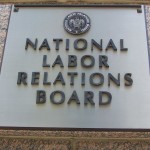Area coordinators: your local connection to new unified hospitality association and member benefits.
In the unified hospitality association being formed by WRA and WLA, member services will draw on WRA’s successful area coordinator system. There will be 10 area coordinators based around the state, giving members a close connection to the association no matter where they live. As part of the transition WRA’s current area coordinators will begin reaching out to WLA members in August.
A unique model of engagement
When the Washington Restaurant Association developed the concept of area coordinators in 1996, the idea was borne from the need to connect. Since then, area coordination has become one of the key concepts that defines the WRA’s operations and sets its organizational model apart from many other associations.
“Part of the original plan was to engage restaurateurs directly, connect them with legislators and catalyze the beginning of a grassroots advocacy program,” said Anthony Anton, president and CEO of the WRA.
The WRA learned from its members that they wanted a relationship with the association that went beyond information and news reports. They wanted someone they could call, someone they knew, someone who would get the ball rolling for them in whatever direction their current needs dictated. Members needed someone to guide them through the noise, someone with a clear understanding of the industry and a menu of solutions for the ills a restaurant might encounter.
What members needed was a first response team, a restaurant 911.
“At its core,” said Anton, “the heart of the area coordinator program is to enact better community connection and stronger political influence within the hospitality sector.”
When asked if the creation of area coordinators had worked as he hoped it would, Anton replied, “In my mind, it’s a wild success, but there has been a definitive learning curve. From the get go, the program has achieved what we set out to do, and along the way, we have refined the system and calibrated it based on feedback from members and area coordinators. After each iteration, we come that much closer to ‘spectacular.'”
In fact, members who enjoy close ties to their area coordinator list that relationship as one of the great benefits of being a member of the WRA.
Initially, the association assumed that the best candidates for the position would be people with a background in sales. The WRA also hoped that area coordinators would aid retention initiatives.
“We thought experience selling memberships would be a critical skill for the position,” said Anton. “What we learned was that the most crucial ingredient for an area coordinator to meet with success was a deep commitment to hospitality, in general, combined with a caretaker attitude. We wanted people that involved their hearts and passions. Initially, figuring out just who exactly was the right person to be an area coordinator was our toughest challenge. Now, however, we have a clear understanding of the type of professional who fits best in the AC role. Essentially, we want our members to feel like they have another strong and dedicated member on their team.”
More members, more support
The WRA area coordinators have given a personal touch to WRA for almost two decades, and this model will be expanded in the new combined hospitality association and extended to WLA members.
As part of the transition, the WLA and WRA membership teams are merging, in July, and area coordinators will begin reaching out to WLA members in August to introduce themselves and the area coordinator system. The plan is for 10 area coordinators, each locally based to support members throughout the state with close, personal ties to the association. And as the membership of the new association grows, so will the area coordinator team.
Cathy Fox, the area coordinator for South King County, looks forward to working with more hoteliers.
She came to the WRA with a strong background in hospitality, an academic education in political economy and personal experience running a small business. She is passionate about analyzing profit and loss scenarios in micro-economic climates. Most of all, she likes talking to business owners and operators, finding out what makes them tick, how they interface with the public and what their growth plans look like for the future.
“I am fascinated by how our members anchor communities,” Fox said. “As an area coordinator, I get to see the good work that they do beyond their walls every day.”
Area coordinators are trained to take note and pay attention to the details of your unique organization, from your operational and economic challenges to the values at the foundation of your business. From her perspective, the two most important ingredients a successful AC can bring to the table are tenacity and good listening skills.
“Good listening allows me to really find out what is on a member’s radar as an important issue,” said Fox. “Tenacity helps me be a powerful advocate for my members, but it also connects me to a community that is traditionally very hard to connect with. Business owners have limited bandwidth, and being tenacious about solutions to help them in their operations helps me help my members.”
Donna Tikker, the WRA area coordinator for the Spokane area, also takes her role seriously.
“I have a motherly attitude,” Tikker said. “I want to help people succeed, and that desire comes right out of my heart. ACs are interested in members. They ask questions and they have a deep curiosity, and they have a tool kit to move an operator toward success.”
One of the ways Fox, Tikker and the entire AC team will help members is to connect them with all of the benefits and programs available through the association. Whether it is credit card processing, health insurance or music licensing, to name just a few of the items on the menu of cost-saving programs available to members, ACs have solutions that help members save time and money.
The desire to strengthen grassroots action within communities across the state was a key factor in the creation of the WRA area coordinator lineup, and ACs will play a critical role in engaging members in government affairs in the new association. They reach out when calls to action are critical to the industry’s success in Olympia, and they strengthen relationships between members and lawmakers by encouraging participation in the annual legislative Hill Climb.
WRA area coordinators are also a decisive means for association members to share their point of view and issues of concern, whether it is something that only affects their business or affects the industry as a whole. They are a great conduit, and although members have multiple channels through which they can contact the association, a real meeting with a real person is a great way to share information and find effective solutions.
All members—new or old, WRA or WLA, hotels, restaurants or allied vendors—are encouraged to connect with their area coordinators. Take their calls when the reach out to you or give them a call and invite them for a cup of coffee. Start a conversation. Tell them and us what is important to you on a daily basis. What keeps you up at night? Your area coordinators want to know. They are ready to listen.
For more information on membership in the new association, Area Coordinators contact Jennifer Hurley, the WRA’s Membership Administrator by emailing jenniferh@warestaurant.org or by calling 360.956.7279.
 (Oct. 11, 2015) The Washington Lodging Association joined the Washington Restaurant Association in a lawsuit filed last week against the Washington State Liquor and Cannabis Board (LCB) over new rules that would restrict options for negotiating liquor prices. Northwest Grocery Association and Costco have also joined the suit.
(Oct. 11, 2015) The Washington Lodging Association joined the Washington Restaurant Association in a lawsuit filed last week against the Washington State Liquor and Cannabis Board (LCB) over new rules that would restrict options for negotiating liquor prices. Northwest Grocery Association and Costco have also joined the suit.








 (April 1, 2015) Stan Bowman, a skilled executive and policy advocate with a strong background in legislative and regulatory affairs in both Washingtons, is WLA’s new president and chief executive officer. He replaces Jan Simon who retired on March 31 after leading WLA for 15 years.
(April 1, 2015) Stan Bowman, a skilled executive and policy advocate with a strong background in legislative and regulatory affairs in both Washingtons, is WLA’s new president and chief executive officer. He replaces Jan Simon who retired on March 31 after leading WLA for 15 years.

 (March 16, 2015) After more than 15 years at the helm of the Washington Lodging Association, President & CEO Jan Simon
(March 16, 2015) After more than 15 years at the helm of the Washington Lodging Association, President & CEO Jan Simon 




